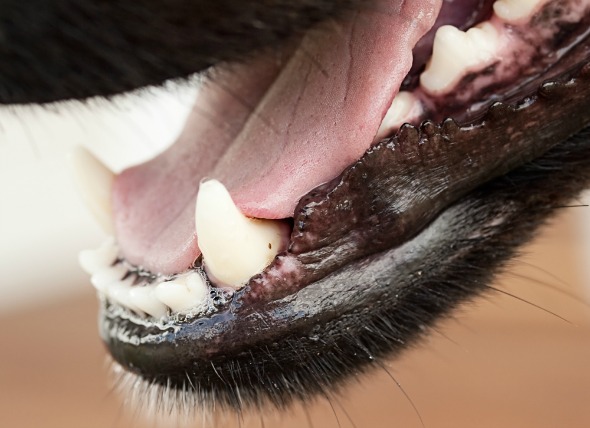Your pet's general health can be ensured by routine vaccinations, regular check-ups by a veterinarian in Lewisville and Carrollton, TX, and by avoiding exposure to animals infected by common diseases. Unless properly vaccinated, your dog is at risk of contracting one of several, possibly fatal, infectious diseases. Some of the most common infectious diseases can be prevented by routine vaccinations from your veterinarian.
What are Vaccines?
Vaccines help prepare the body's immune system to fight the invasion of disease-causing organisms. Vaccines contain antigens, which look like the disease-causing organism to the immune system but don't actually cause the disease. When the vaccine is introduced to the body, the immune system is mildly stimulated. If a dog is ever exposed to the real disease, his immune system is now prepared to recognize and fight it off entirely or reduce the severity of the illness.
The bottom line? Vaccines are very important in managing the health of your dog. With that being said, not every dog needs to be vaccinated against every disease, which makes it important to discuss with your veterinarian a vaccination protocol that is right for your dog. When determining a vaccination protocol your veterinarian will factor in age, medical history, environment, travel habits and lifestyle.
There are two types of vaccines - Core and non-core. Core vaccines are considered vital to all dogs based on risk of exposure, severity of disease or transmissibility to humans. Canine parvovirus, distemper, canine hepatitis and rabies are considered core vaccines. Non-core vaccines are given depending on the dog's exposure risk. These include vaccines against Bordetella bronchiseptica, Borrelia burgdorferi and Leptospira bacteria. Your veterinarian will determine what vaccines are best for your dog.
How Often Should My Dog be Vaccinated?
It is important to make sure your dog completes the initial series of core vaccines administered at the puppy stage, as well as booster shots at one year of age. Following these one-year boosters, the American Animal Hospital Association (AAHA) Canine Vaccine Guidelines recommend that the distemper, adenovirus and parvovirus core vaccines are administered once every three years. States and municipalities govern how often rabies boosters are administered. Some areas require a rabies booster to be administered annually, while others require a three-year-effective rabies booster to be given every three years.
Noncore vaccines should be administered whenever the risk of the disease is significant enough to override any risk of vaccination. For instance, kennel cough vaccine may need to be administered up to every six months in a dog that is repeatedly being kenneled or exposed to groups of dogs at grooming salons or dog shows.
Regular wellness examinations, in addition to proper vaccinations, are the most important preventive measure that you can provide for your dog. To help keep your dog healthy and happy, visit your veterinarian in Carrollton and Lewisville, TX for regular wellness examinations and vaccines.

 Excess Thyroid Hormone in Dogs
Hyperthyroidism in Dogs
Hyperthyroidism is a dise
Excess Thyroid Hormone in Dogs
Hyperthyroidism in Dogs
Hyperthyroidism is a dise
 Pus Cavity Forming Under Tooth in Dogs
Tooth Root (Apical) Abcess in Dogs
Similar to hum
Pus Cavity Forming Under Tooth in Dogs
Tooth Root (Apical) Abcess in Dogs
Similar to hum
 Parasite Infection (Leishmaniasis) in Dogs
Leishmaniasis in Dogs
Leishmaniasis, the medical
Parasite Infection (Leishmaniasis) in Dogs
Leishmaniasis in Dogs
Leishmaniasis, the medical
 Unruly Behaviors in Dogs
Jumping, Digging, Chasing, and Stealing Behaviors in Dog
Unruly Behaviors in Dogs
Jumping, Digging, Chasing, and Stealing Behaviors in Dog
 Bone Overgrowth in Dogs
Hypertrophic Osteopathy in Dogs
Hypertrophic oste
Bone Overgrowth in Dogs
Hypertrophic Osteopathy in Dogs
Hypertrophic oste